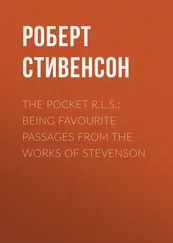The four main categories are the emotional authority, the gut authority, the intuitive authority and the will authority. None of these are related to the intellect. Normally, we would throw all four in one basket. However within that basket, there would be big differences. Some of them are likely to be overlooked altogether. Let's have a look and see what's in it for us.
According to Krakower, the emotional corresponds to 50 percent of the population. They need to go through their emotional wave, to be able to take a decision. To trigger their emotions, they must get involved with all their senses, and they need time. Nevertheless, they can never expect to reach absolute certainty. So they wait for their emotional wave to go through, to give them the feeling of relative certainty, and as long as that isn't happening, no productive decisions will be taken. It seems to be tempting to persuade or force this group, but that's a perilous path, because deep within they'll feel violated.
The second largest group with around 25 percent are the gut decision takers. They don't need much time, and they are likely to get a rather clear signal in the gut area when to go for it. They usually talk about a kind of "chakka- feeling”.
The third group is the intuitive group that corresponds to around 15 percent. This signal from the body is linked to the spleen according to Krakower, and it is fast as lightning. It manifests in the body as a tingling sensation, and they say it only occurs once per decision. So these people need to listen to their body signal at a very early stage in the information process. It's more like "bzzz-feeling" and they just know that feels right. If the signal doesn't come, there is no decision on that particular matter. It may take some practice and sensitivity to notice it at first.
The fourth group is connected to the will and the heart. It manifests as an almost obsessive feeling. This group usually reacts to things they become acquainted with, and if their heart responds to some issue, it carries them away completely. They become almost unstoppable. This group only corresponds to about 8 percent of the population, but the interesting thing could be, that many leaders are likely to be found in this category, according to this theory.
I certainly did not belong to the two major categories, so I was always wondering what people were referring to when they talked about gut decisions. Of course, this is just a model, and it's not scientific at all. However, it can be helpful because it opens up new options for understanding for this delicate process. If this model were to be relevant, it would be wise to listen to the body more when taking decisions.
Wherever a decision comes from, we need good decision making. Many important decisions need to be taken collectively in meetings. Imagine your team with 50 percent emotional, 25 percent gut and 15 percent intuitively based decision takers. What if there was something valid in this view? What would your presentation look like if this was true? What if more than 50 percent of all participants were to be slow decision makers, would you change your approach or subtly force them to say, yes?
Collective decision making is a fascinating and rewarding matter to take a closer look at. We are playing a lot of games when decisions are made. To improve your decisions, you can easily heighten your awareness by doing the following. Let's say you had some options and based on these choices a decision starts to take shape.
Ask yourself - what assumptions do I base this decision on? And, what do I base these assumptions on? Go all the way back to your body signals.
Every idea, proposal or decision is based on assumptions, some of them rational and others emotional. Whatever it is, start noting your assumptions. We usually think we are so clever that we already know. However when you do ask yourself this simple question, and explicitly dissect your assumptions about it, you may be surprised, amazed, or annoyed. This little habit is likely to save you a lot of trouble. It is a great tool to prevent you from jumping to wrong conclusions.
If this book was about leadership styles it would only bore you with things you have already heard a thousand times? Where it becomes interesting is to look at questions such as:
1 What is the subtlest way to dominate or control others?
2 Why does this happen subconsciously?
3 What are the consequences of subtle domination or control?
4 Why would it be better not to control in this way?
These are my views relevant to motivation.
1) Let's start with the subtlest way to control others. Without going into quantum physics, that I don't understand, I'd like to opt for being. The mere fact that you exist is mostly enough to control others, especially if you are a leader, because you embody something like determination, will, ideas, and power. That entire package is like a strong magnetic pull that affects everything around it. Would your employees be made of metal they would hardly ever be free, even if this magnet would be able to say, "Do it your way" or "please tell me what you think." Not what the magnet says but what he IS counts.
This may seem ridiculous at first, but please consider the possibility, that even you cannot be considered to be free from conditioning, habits, triggers, opinions, etc. Anger is a lovely example. You don't have to be a scientist to tell that if you sit in the same room as a person who is angry, you'll be affected after a while. As a matter of fact, if he doesn't come out with it, you may even think it's your anger. Furthermore, you may feel different in the presence of different people. The extremes may be a highly distinguished martial arts fighter and a newborn baby. Have you ever noticed?
"If you don't feel it, you'll never get it."
Johann Wolfgang von Goethe
In a meeting, it may be clear to everybody, except to the "Dominator" that his mere presence inhibits the rest to speak freely. He may even invite people to give their opinion, but people are not likely to say anything other than what he wants to hear. It even works on subtler levels than being in the room.
If you have ever been in the presence of a benevolent, open, and welcoming person, a person with high integrity, you know what I mean. You feel free to talk, be who and what you are and think freely. These people exist in the corporate world too. I have met some of them, and their departments or companies seem to flourish. They do not have problems motivating, on the contrary, they can hardly avoid it. They radiate motivation and inspiration.
2) Although it mostly happens subconsciously, we may enjoy this process because it seems to strengthen our position. It is possible that we never thought about it, further down the road. For most of us, the problem seems that we grew up believing that we are all independent entities, and subsequently it doesn't matter what kind of pull or push we carry within, nobody will ever notice. Secondly, we are usually not even aware of how we limit ourselves. Thirdly, this is not part of our rational worldview, because neither right brain thinking nor subtle perceptions are part of our present model. But it doesn't take too much intelligence to figure out that none of them are particularly strange as such. Modern science has preached about them for quite a while now.
3) The consequences of subtle control and domination are devastating. We are limiting the capacity of our corporations and units. We inhibit true freedom of act and thought, although we may verbally encourage people to speak up. If you have ever conducted a meeting with a strong hidden agenda, you probably know what I'm talking about. The meeting is just a formality and you know exactly where you want to be by the end of the meeting. O boy, I did that all the time as a young manager. And rarely was the meeting satisfactory, and rarely did I motivate or inspire anybody. I made all the mistakes in the book, and what I'm talking about here is the same principle but somewhat subtler. My message to you is that it works the same, and you are often not even aware that you are doing it.
Читать дальше












